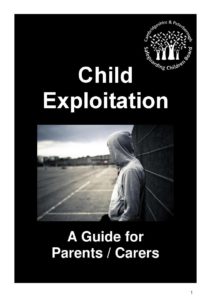County Lines
County lines is a term used to describe gangs, groups or drug networks that supply drugs from urban to suburban areas across the country, including market and coastal towns, using dedicated mobile phone lines or “deal lines”. They exploit children and vulnerable adults to move the drugs and money to and from the urban area, and to store the drugs in local markets. Victims are recruited using intimidation, deception, violence, debt bondage or grooming. During this process the ‘victims’ are likely to commit criminal offences.
The most common drugs involved are heroin and cocaine (crack and powder), but also MDMA, cannabis, amphetamines and spice. Children as young as 12 years old and up to 17 years old are recruited, often using social media. They are exploited and forced to carry drugs between locations, usually on trains or coaches. They are also forced to sell drugs to local users.
Gangs and networks are also known to target vulnerable adults and take over their premises to distribute Class A drugs in a practice referred to as ‘cuckooing’.
County Lines puts people at risk of criminal and sexual exploitation, as well as serious harm through physical and sexual violence and emotional abuse.

